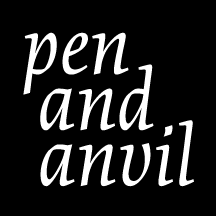

// published in 2020
// sale price $2.25
// poetry |
|
|
 |
| by Susie Gharib // a Pen & Anvil chapbook |
|
 
|
Susie Gharib earned her doctorate at the University of Strathclyde. Since 1996, she has made a living as a lecturer in Syria. Her poetry and fiction have appeared in venues including Crossways, The Curlew, Adelaide Literary Magazine, The Opiate, Plum Tree Tavern, Foliate Oak, The Blotter, Coldnoon, The Moon Magazine, and A New Ulster. Connect with her on Twitter.
// To buy this title, via PayPal or with a credit or debit card, please let us know how many copies you'd like to order:
// Customers who hope to arrange an order for delivery to an address outside the US are asked to click here to contact our staff directly by email. |
|

|
a poem in English and Arabic,
dedicated by the author to her father
The city of Latakia was named after the Seleucid emperor’s mother Laodice, and was known in ancient times as al-Ladhiqiyyah in Arabic, Laodicea ad Mare in Latin, and Laodikeia he paralos in Greek, “Laodikeia beside the Sea.” Following rule by the Roman Empire, the city was governed by the Eastern Roman Empire; the Rashidun, Umayyad, and Abbasid Caliphates, in succession; the Crusaders; the Ayyubids; the Mamluks; the Ottomans; and finally the French, by mandate via the Alawite State.
In the modern era, Latakia continues to be the main seaport in Syria. Nearly the entire population speaks Arabic, in the North Levantine dialect. At the outset of the Syrian civil war in 2011, English-language news sources reported on protest activity that took place in the city.
Over the centuries earthquakes have damaged or destroyed many historical sites and buildings. However, traces of the city’s long heritage are still visible. The marina, which has ever been the source of much of Latakia’s wealth, is built on foundations of ancient stone columns. Sepulchral caves dot the hills. The public gardens at the national museum have on display a profusion of capitals, ornaments, statues, and funerary tombs.
Since 1956, the city has hosted an unofficial camp of more than 6,000 Palestinian refugees.
|
|
| About this chapbook series: |
These bite-sized booklets are a mouthful of literature each, intended to be read in a single sitting. When you’re done with one, pass it along! Look for them lying around in Boston, Portland, or New York City. When you see one waiting to be read, go ahead and pick it up. Give it a home in your hands for a ten-minute lit snack. Then when you’re finished, leave it behind for the next person to find, in an ATM lobby, on a train station bench, in the coffeeshop, at the pub.
To request a single copy of any chapbook in the series, or a set of copies in bulk quantity so you can pepper them around your neighborhood, just contact the Pen & Anvil Press and we can put a plan together to mail some over to you. You can reach us via the good folks at the Boston Poetry Union, at 139 Mt. Vernon Street, Fitchburg MA 01420. If you don’t have a stamp, feel free to send us an email.
|
|
|


